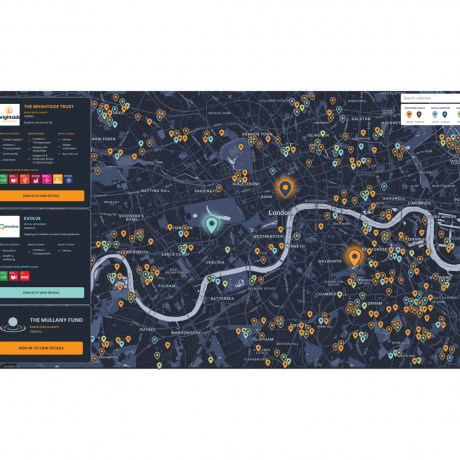whatimpact.com, Ministry of Defence, Babcock, Plymouth County Council, and Microsoft collaborated on the Social Value in Defence project. They are now celebrating after winning a national award for their work.
This project highlights the power of cross-sector collaboration and open data. The power to improve people’s lives in local areas across the country. The team created a social value deprivation data platform pilot. It used open-source data aggregated to get an idea of local areas for social improvement and mandatory social value delivery*. All done pro bono.
The Hackathon
The team won the Institute of Analytics (IOA) Data for Social Good Award, for the pilot hackathon. In this hackathon, they built and tested a comprehensive dataset combining advanced analytics in just three days. They aggregated open data sources to analyse the socio-economic status of Plymouth, providing in-depth insights. The results clarified focus areas for social value investments and activities, highlighting key areas of deprivation.
The team chose Plymouth to support a wider ‘Plymouth Pathfinder’. An ongoing collaboration between government, business, academia and local stakeholders. The focus of the hackathon was to create a prototype of a data platform. It’s the initial step in supporting teams’ broader ambition, creating an accessible platform for public, private and third sector organisations in the future.
The IOA praised it and said it’s the best example they had seen of how “data can be used to solve the humanitarian and environmental problems facing society today”.
whatimpact.com is the only UK social value management platform matching companies to local VCSEs to eceive comprehensive social impact reporting. The impact reporting is aligned with The Government’s Social Value Model and embedded to the partnerships created with the help of the platform.
The future of the project
Tiia Sammallahti, CEO of whatimpact, noted, “We understand the challenges organisations face in defining causes and collaborating with VCSEs across diverse locations. “With data from the platform, organisations can plan impactful social value activities, truly uplifting society. Our platform aids in delivering and reporting value, not just meeting government contracts but maximising societal impact. We cannot wait to integrate the data tool to our own platform for ‘smarter’ social value decisions.”
This proof of concept initiates future hackathons to enhance understanding of social value requirements among businesses and governments.
David Whipp, Social Value Specialist at DSF and Ministry of Defence, emphasised, “Our creation involves all government sectors, not just defense.” Working in collaboration Babcock and others we have been able to create a really exciting pilot. It actually demonstrates how we can use data to create real, tangible benefits aimed at improving people’s lives. We anticipate sharing our results with other Government departments to foster mutual learning, progressing towards future collaborative social value projects.
Kat Dixon, Analytics Business Partner, Babcock, who submitted the award added: “This is a real achievement for all involved and demonstrates what can be done with determined people, great partnerships and a clear vision about how we can work together to create a better world for us all to live in.”
Social Value
*Social value has become an incremental part of government contracting due to an enhancement of the Social Value Act with the Procurement Policy Note 06/20 and various other policies making sure that the Government’s buying power on both a local level and in Central Government is harnessed for social value. Tender bids now receive 10-30% scoring based on companies’ social and environmental activities during the contract period. Hundreds of government organisations and bidding companies struggle to access clear information on local societal challenges, posing a challenge. This makes it hard to direct social value activities (employment, community engagement, environmental and supply chain decisions) to the right direction.
For more on the project, read about the key goals & progress here.
You can also see what all the partners in the project had to say about this collaboration in a 6min video.





